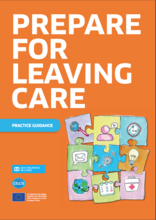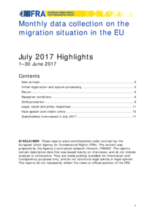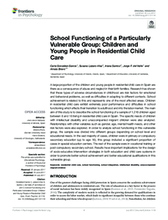Displaying 111 - 120 of 149
This quantitative study contributes knowledge regarding the attitude of professionals towards positive parenting and child participation.
This study aims to give voice to parents and gather their views about contact visits in foster care.
The 2017 country factsheets provide an update on the status of child protection and care reforms from 16 European countries that are the focus of Opening Doors for Europe’s Children campaign in Phase II.
This article examines whether migrant children are viewed differently than native children, employing an experiment on a representative sample of the populations of Austria, Norway and Spain.
This Practice Guidance, developed by SOS Children’s Villages International and CELCIS, seeks to promote improvements in practice that should have a positive impact for young people during and after the leaving care process. The contents of this Practice Guidance are in good part informed by a detailed Scoping exercise that was carried out in each of the five countries participating in this project: Croatia, Italy, Latvia, Lithuania and Spain.
This report analyzes the relationship between poly-victimization and the internalizing and externalizing symptoms amongst 12-17 year old youth living in residential care centers in Spain.
This study investigated how adoptive and prospective adoptive parents in Spain deal with signs of fraud and corruption within the intercountry adoption process, illuminating the dismissal of the systemic failures of intercountry adoption and the rights of birth families.
This report from the European Union Agency for Fundamental Rights (FRA) provides data on migration throughout the EU from 1-30 June 2017. The report includes data on the child protection situation for migrant children, particularly the identification, emergency placement and accommodation of unaccompanied children.
This study describes the school functioning of a sample of 1,216 children aged between 8 and 18 living in residential child care in Spain. Results have important implications for the design of socio-educative intervention strategies in both education and child care systems in order to promote better school achievement and better educational qualifications in this vulnerable group.
This study examined the extent to which children and adolescents participated in decisions that affected them at the points of removal and reunification in the child protection process in Spain.



